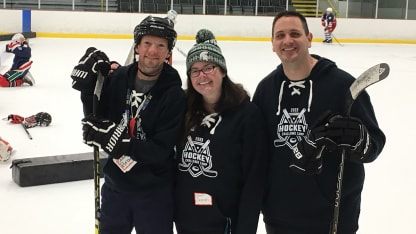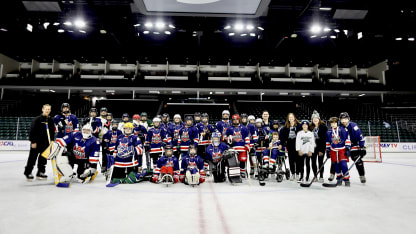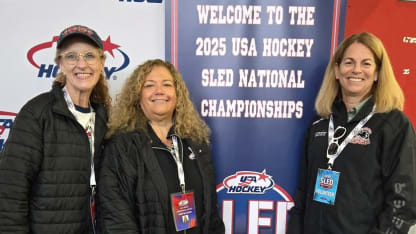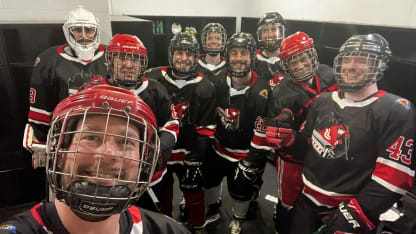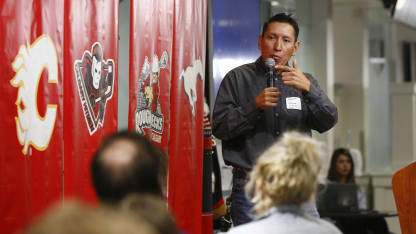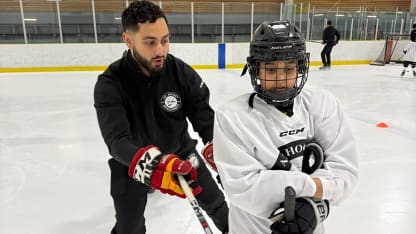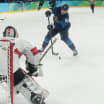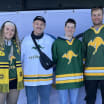The Willie O'Ree Community Hero Award presented by Discover is given to an individual who, through hockey, has positively impacted his or her community culture or society. The award honors O'Ree, the former NHL forward who became the first Black player to play in the NHL on Jan. 18, 1958, and has spent more than two decades as the NHL's diversity ambassador. After a public voting period and votes from O'Ree, NHL executives and Discover executives, the winner will be announced in June. There will be a winner from the United States and one from Canada.
Today, a look at one of three United States finalists, Sarah Dunkel-Jackson:
Sarah Dunkel-Jackson's 14-year-old son, Cale, is a hockey player, so to learn more about the sport, she turned to "99: Stories of the Game" written by Wayne Gretzky.
It's when Dunkel-Jackson remembers reading about Willie O'Ree, her first impression just like any other kid from Canada who loved hockey. She then learned about everything he powered through before and after becoming the first Black player in the NHL with the Boston Bruins against the Montreal Canadiens at the Montreal Forum on Jan. 18, 1958.
Dunkel-Jackson thought O'Ree's life story would be nice to read to her kids. She's penning her own chapter as a finalist for the Willie O'Ree Community Hero Award that, since 2017-18, has been presented annually "to an individual who -- through the game of hockey -- has positively impacted his or her community, culture or society."
The Doctor of Philosophy, researcher and professor at Michigan State University founded the Hockey Challenge Camp, a program for children and their hockey buddies with unique learning and/or medical needs, channeling her expertise into working with the local Arc Livingston chapter in Brighton, Michigan, about an hour from Detroit.
She's learned a lot about O'Ree, the 89-year-old native of Fredericton, New Brunswick.
"He did some amazing things about overcoming barriers in his career," Dunkel-Jackson said. "And I just want to make sure that other kids who might be facing challenges or facing barriers, they too can participate in fun things like sports around the game."
